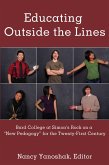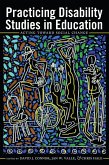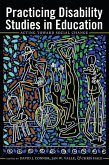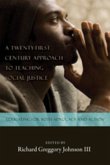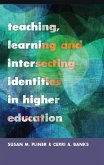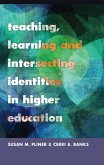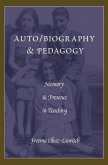Founded in 1966, and premised on the idea that motivated sixteen-year-olds are capable of college work, Bard College at Simon's Rock is an educational «experiment» from the sixties that has endured and prospered. Educating Outside the Lines looks at Simon's Rock as a pioneer of the early college movement that has begun to reshape the connections between secondary and higher education. Because its curriculum is entirely at the college level, its students handle a challenging B.A. program before having completed the last two years of high school, and may earn their degrees before they are twenty. In this collection, faculty and alumni explore what this unique vantage point can teach about college pedagogy. The book invites educators, parents, and students to re-imagine what college itself could be.
«What a delight to find this wonderful volume. It does something that I've long contemplated, offering specific and detailed examples of how people actually create those Natural Critical Learning Environments that I wrote about more generally in 'What the Best College Teachers Do'. Here you will find the voices of both teachers and students analyzing their work together across the liberal arts curriculum on problems that are authentic, challenging, and consequential. One of the leitmotifs of the book is the trust that is established between teacher and student, taking each other seriously as learners on an intellectual journey that is at once highly collaborative and highly individualized. Beyond the exploration of pedagogical strategies and experiences, this book thus conveys a sense of the ethos and spirit that characterizes a vibrant and unique learning community. 'Bard College at Simon's Rock' exemplifies the power and reach of the early college idea, and this collection has much to say to both traditional and non-traditional institutions of higher education.» (Ken Bain, Author of 'What the Best College Teachers Do'; Vice Provost for University Learning and Teaching, and Director, Research Academy for University Learning, Montclair State University)
«In an age in which, arguably, the art of conversation is dead, preconceived notions are more important than learning, and either-or thinking triumphs over deliberative reflection, 'Educating Outside the Lines' offers a simple, yet brilliant antidote. Mining decades of alternative and imaginative college pedagogy at Bard College at Simon's Rock, each chapter presents a distinctive approach to college instruction that finds meaning in that which the university-level establishment dismisses. This volume cultivates the 'spaces in-between' - the gaps in traditional approaches to education - and lends them meaning and pedagogical force. It is the space between academic disciplines (interdisciplinarity), age (adolescent-adult), experience (novice-expert) and power (subordinate-dominant) that triumphs. Bravo for a book that liberates undergraduate education from stifling polarity. Professors and students are free to engage a twenty-first century where ambiguity and uncertainty are dominant, and where answers to our queries about how to improve our pedagogies may lie precisely in these unexplored spaces.» (William G. Durden, President of Dickinson College; and former Executive Director of the Center for Talented Youth at Johns Hopkins University)
«American education can only be as great as is our willingness to experiment outside of the conventions, and in that Bard and Simon's Rock have long been inspiring leaders. We all have much to learn from their efforts and analysis, for which we are all grateful.» (Anthony W. Marx, President, Amherst College and President-Designate, The New York Public Library)
«This exquisitely crafted set of essays illuminates the rich gifts that a humanistic design for learning extends to everyone - to students themselves, to a thoughtful democracy, and to our entire society's capacity to explore, 'in community', far-reaching questions about our responsibilities to one another and to our shared and vulnerable planet.» (Carol Geary Schneider, President, Association of American Colleges and Universities)
«In an age in which, arguably, the art of conversation is dead, preconceived notions are more important than learning, and either-or thinking triumphs over deliberative reflection, 'Educating Outside the Lines' offers a simple, yet brilliant antidote. Mining decades of alternative and imaginative college pedagogy at Bard College at Simon's Rock, each chapter presents a distinctive approach to college instruction that finds meaning in that which the university-level establishment dismisses. This volume cultivates the 'spaces in-between' - the gaps in traditional approaches to education - and lends them meaning and pedagogical force. It is the space between academic disciplines (interdisciplinarity), age (adolescent-adult), experience (novice-expert) and power (subordinate-dominant) that triumphs. Bravo for a book that liberates undergraduate education from stifling polarity. Professors and students are free to engage a twenty-first century where ambiguity and uncertainty are dominant, and where answers to our queries about how to improve our pedagogies may lie precisely in these unexplored spaces.» (William G. Durden, President of Dickinson College; and former Executive Director of the Center for Talented Youth at Johns Hopkins University)
«American education can only be as great as is our willingness to experiment outside of the conventions, and in that Bard and Simon's Rock have long been inspiring leaders. We all have much to learn from their efforts and analysis, for which we are all grateful.» (Anthony W. Marx, President, Amherst College and President-Designate, The New York Public Library)
«This exquisitely crafted set of essays illuminates the rich gifts that a humanistic design for learning extends to everyone - to students themselves, to a thoughtful democracy, and to our entire society's capacity to explore, 'in community', far-reaching questions about our responsibilities to one another and to our shared and vulnerable planet.» (Carol Geary Schneider, President, Association of American Colleges and Universities)


